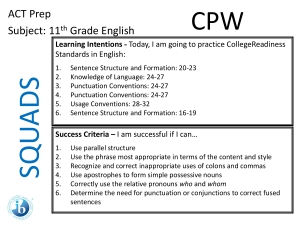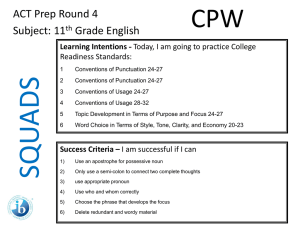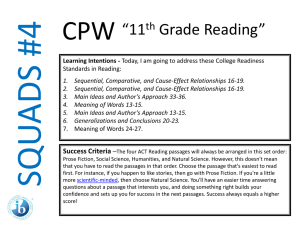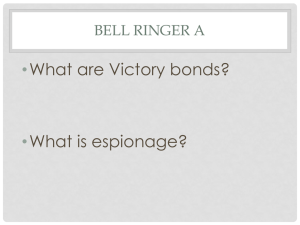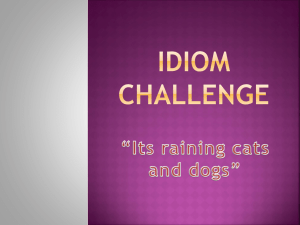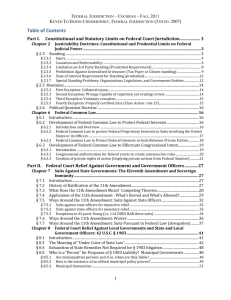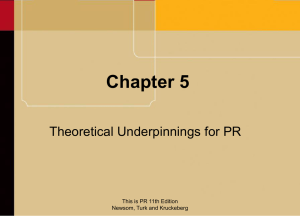THE 11th AMENDMENT
advertisement
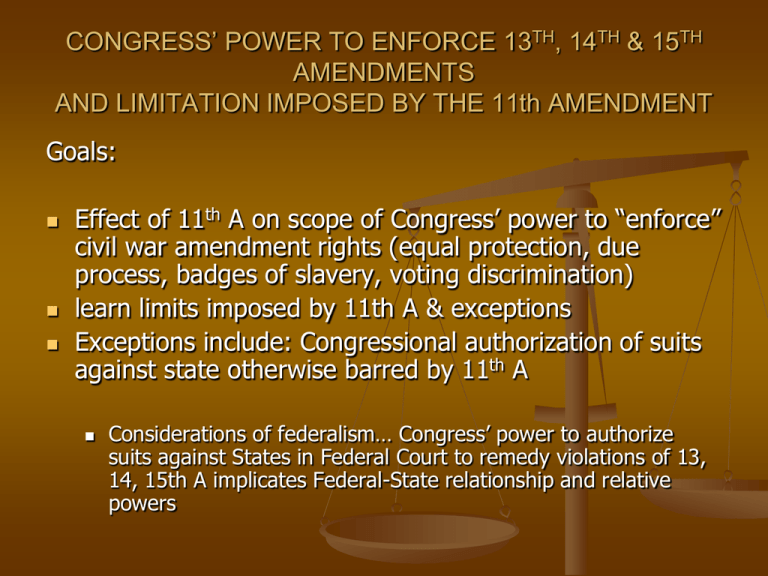
CONGRESS’ POWER TO ENFORCE 13TH, 14TH & 15TH AMENDMENTS AND LIMITATION IMPOSED BY THE 11th AMENDMENT Goals: Effect of 11th A on scope of Congress’ power to “enforce” civil war amendment rights (equal protection, due process, badges of slavery, voting discrimination) learn limits imposed by 11th A & exceptions Exceptions include: Congressional authorization of suits against state otherwise barred by 11th A Considerations of federalism… Congress’ power to authorize suits against States in Federal Court to remedy violations of 13, 14, 15th A implicates Federal-State relationship and relative powers Brief History of 11th A Relevant Constitutional Text Article III, Sec.2 Judicial Power shall extend…to controversies between…a State and Citizens of another State… Chisholm court so bold, follows the text allows suit against South Carolina by citizen of Georgia in Federal Court 11th A Adopted very quickly The Judicial power of the United States shall not be construed to extend to any suit….against one of the United States by Citizens of another State Literally: No Federal Court Jurisdiction over suits against the State Government by persons not from that state Subsequent Judicial Interpretation Han: 11th A reflects broad historical immunity of states from suit = (Contrary to what it actually says) No Individual can sue state in federal courts Rationale derived from common law doctrines of sovereign immunity Thus Han extends 11th A restriction on federal court jurisdiction to suits brought by citizens of a state against that state What isn’t included w/in 11th A Doesn't apply in suits by Fed Gov Doesn't apply in suits by other states Doesn't apply to Local govern entities like cities (but Pennhurst…) Doesn’t apply to Supreme Court’s appellate jurisdiction (from state courts) Doesn’t apply to suits against Public Officials in individual capacity if Ex Parte Young 11th A Doesn't apply if suit is: Against Official of the State (not state itself/ unless State is real party in interest) Violation of Constitution or fed law via officer's actions: BUT only For Prospective Relief (injunctions -even if it costs $ to enforce) Or $ directly out of D's pocket- personal liability (not out of state treasury) Exceptions May be Waived by the State (clear consent) (or removal of suit) May be “abrogated” by Congress under “enabling clauses” (eg,14th amendment, sec 5) as law to enforce Civil War Amendments if "unequivocally clear" WHY? 13th, 14th & 15th are later in time… THUS: Congress can remove 11th A immunity and authorize suit against state government in federal courts to enforce Constitutional Rights Key Q scope of this power? (when, why, how) What about Article I? Can Congress also abrogate 11th A immunity pursuant to Article I powers…to regulate interstate commerce, control intellectual property, immigration, protect spending….? Remember Garcia…state governments must comply with federal law Argument for …..? Supremes Say Yes…and then…No WHY Not? significance? Congress can’t authorize private fed. suits against states for violations of most federal law…patent, copyright, commercial regulation (environment/ drug enforcement, etc), bankruptcy leave these laws unenforceable? Exceptions & alternatives for enforcement of federal law federal government can still sue Monetary incentives for waiver/consent ….state courts? Stay tuned….
